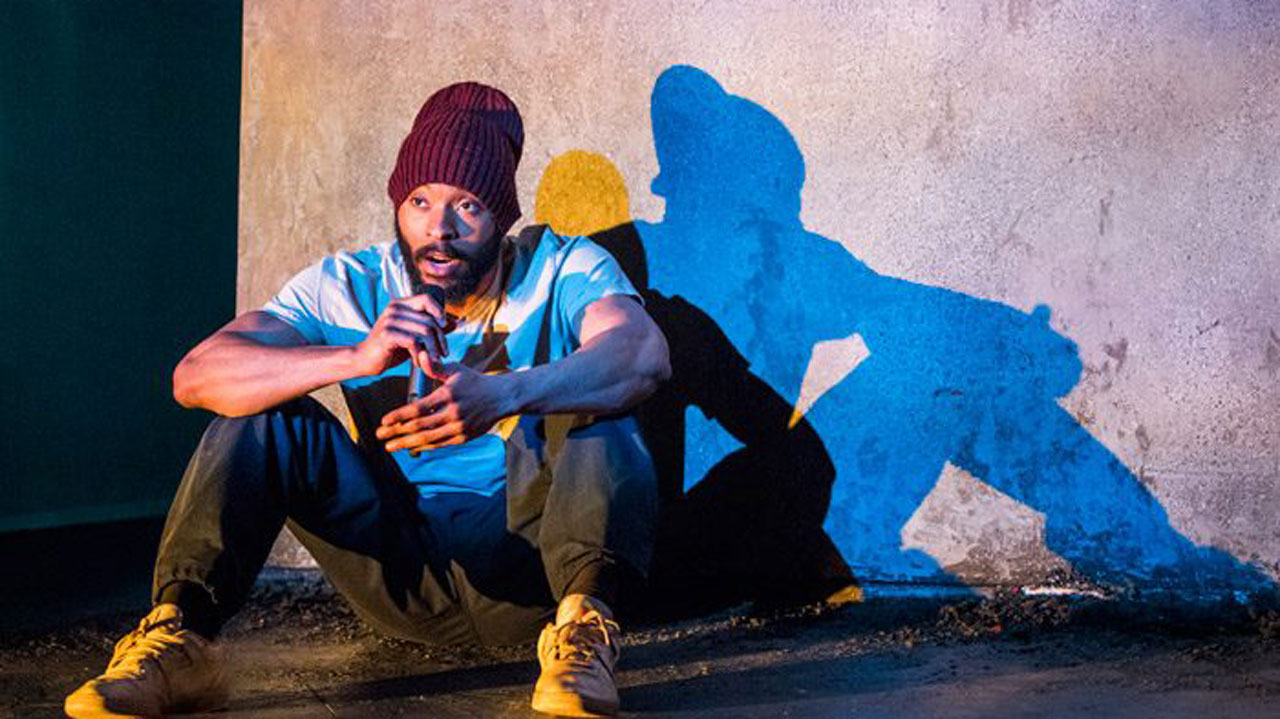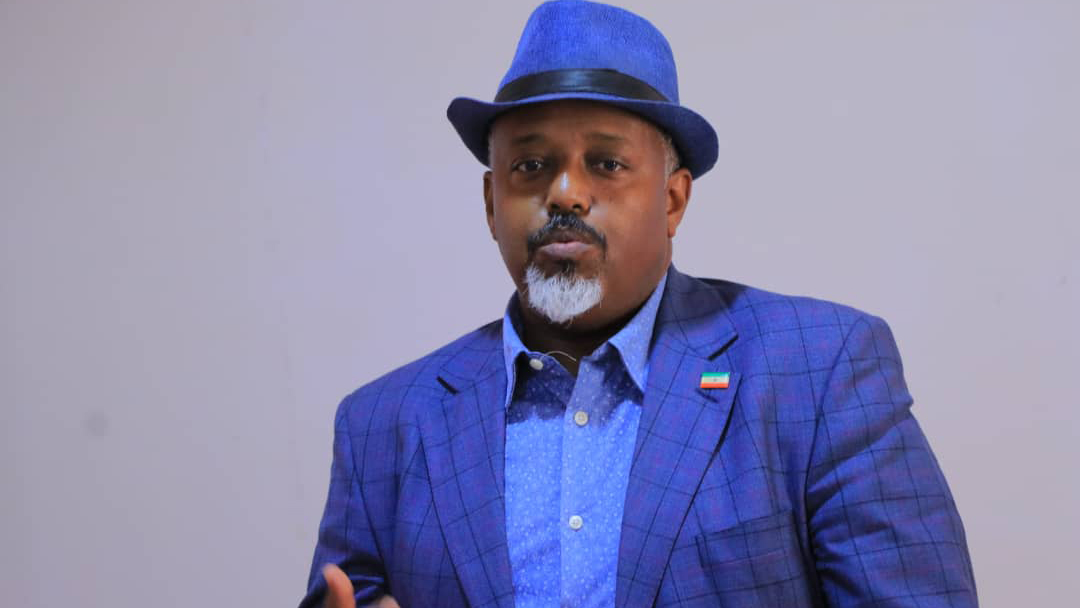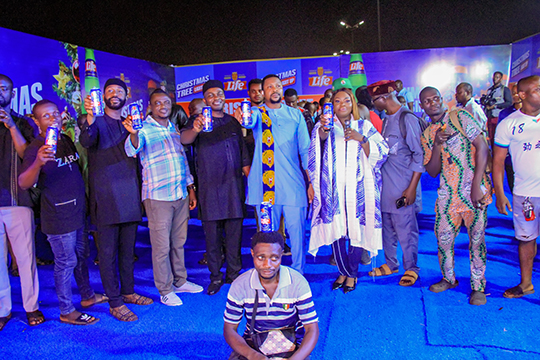
A standing ovation on press night is not a common feature in London’s theatre world. But it seemed like the very least the audience at Trafalgar Studios could do after two hours of some of the most inventive and exhaustive piece of theatre-making seen on the capital’s stage in 2018.
It is possible to be convinced of its singular vision of London and exceptional execution but remain in doubt as to exactly what type of play it is. In the program notes, it is described as an “inventive blend of gig theatre, spoken word, live art and direct address.”
But ask five different people, who have seen it, what the play is and one is likely to get as many interpretations.
Written and performed by Arinze Kene, Misty is primarily about a playwright called ‘Arinze’ and his struggles to write and stage a play about gentrification in London.
Directed by Omar Elerian, the play had a sold out run when it opened at the Bush Theater in March this year and has transferred to Trafalgar Studios, in the west end, for a six week run beginning on September 22.
Born in Lagos and raised in London, Misty is the first play Kene has has written and in which he features. His credits as a writer include, five plays the first of which is Estate Walls (Oval Theatre, 2010) earned him the award for the ‘most promising playwright’ at the Off West End Theatre Awards. His most recent roles on stage are as Sam Cooke in One Night In Miami (Donmar Warehouse, 2016) and as Joe Scott in Girl From The North Country (Old Vic, 2017). For his role as Ade in The Pass (Toledo Productions, 2016) he was awarded the ‘best supporting actor’ at the Evening Standard Awards.
Kene cites Fellini’s ‘8 ½’ (Ceniriz/Francinex, 1963) as an inspiration but strong thematic and structural resemblances are also made with Percival Everett’s Erasure (Faber & Faber, 2003) and Nathaniel Martello-White’s Blackta (Young Vic, 2012) – and just about every meta-play or meta-fiction in which the ideas of selfhood and public duty aim to co-exist.
This is exemplified in a scene in Act One between ‘Arinze’ and his ‘producer’ whose voice is culled from film dialogues by Morgan Freeman.
Whether self-conscious or thoughtful, the frustrated writer makes a telling admission: “This thing is going to have my name on it and if people think I’m out here churning out nigga plays and straight up defecating on our community, that’s not a very good look for me.”
‘Arinze’s’ heightened self-awareness becomes that of the play and multiplies it. A play which critiques the play within it for being an ‘urban safari jungle shit’ will defang any accusations of the play itself being an ‘urban safari jungle shit’ – or any criticism of it for that matter.
“It does make it hard to critique” agrees Kene who could only be interviewed by phone because of tight writing and performance schedules, though he insists that he does not read the reviews, but must surely have any strong or unfavourable opinions in London press passed on by acquaintances.
Being impregnable to criticism shifts the conversations about Misty to being about just how sophisticatedly it has been constructed (and performed). Blocks of texts are written in verse, which ‘Arinze’ raps with dexterity and the few moments when he has to sing, he belts with searing soulfulness that betrays his early days gigging as a leader in a jazz band. Indeed a tracklist of each musical composition is provided in the play text with some denoted as “freestyles” in the manner of a rap album or mixtape all of which is efficiently directed by Elerian who revealed more about his and Arinze’s process in the program notes: “We often spoke about it in the way you create a concept album, having creative sessions and running different ideas until we consolidate some thoughts and images and then start layering different elements on top of each other.”
Elsewhere there’s genetic reconstitution of a sort in Act Two, Scene Six where “Arinze” repeats the words “geh geh” to the beat of him stamping on the floor twice:
“I’m at an arty farty cafe
Geh-geh
I told Tracy to meet me there
Geh-geh”
The call and response goes on for five pages and makes up the entirety of the scene. If uninformed, an audience member might enjoy the pulsing rhythm that builds up and the humor in how seriously flustered “Arinze” is by pretentious hipsters (“you can’t have a seperate menu for tea, bro”).
Another ear will recognise that “geh-geh” is a Nigerianism that mimics the bass drum or plonking piano used for dramatic tension in films, and one which is heard at the start of a Netflix show. And the feet-stomp is reminiscent of American negro spirituals as depicted, in the public consciousness, in films about the atlantic slave trade. Linked by call and response, which is integral in African music, Kene has created a strong musical symbology from the Nigerian and African-American heritages.
[ad unit=2]






